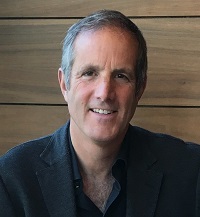Greetings from CPIP Executive Director Sean O’Connor

August has seen the beginning of a highly unusual school year, but I hope everyone is continuing to stay safe. And, since even a pandemic can’t keep the world from having a busy back-to-school month, I’ll keep this month’s note short.
First, we’re gearing up for The Evolving Music Ecosystem conference on September 9-11, 2020. The conference will be held via Zoom and feature a keynote address by singer, songwriter, and author Rosanne Cash. Registration is still open, and we hope you’ll join us!
Second, I’d like to welcome University of Missouri-Kansas City School of Law Professor Chris Holman as CPIP’s new Senior Fellow for Life Sciences. He will be taking over the role from Professor Erika Lietzan of University of Missouri School of Law, who has been supporting CPIP in that capacity for the past year. (Clearly, we have an affinity for the Show-Me State!) We’re excited to have him join us, and by way of an introduction, we encourage you to check out his recent guest column for The Phoenix advocating for protection of new uses for old medicines.
Third, we are finalizing the schedule for our Eighth Annual Fall Conference, to be held via Zoom on October 7-8, 2020. This year’s theme is 5G at the Nexus of IP, Antitrust, and Technology Leadership.
In other news, CPIP Senior Fellow for Innovation Policy Jonathan Barnett is now blogging at Truth on the Market, a platform for academics and economists to discuss various aspects of business law. You can read his inaugural post here. CPIP Senior Scholar Erika Lietzan has been appointed a Public Member at the Administrative Conference of the United States (ACUS), which focuses on improving the administrative process. CPIP Director of Copyright Research and Policy Sandra Aistars spoke this past month on a copyright licensing panel hosted by Artomatic with the goal of informing visual artists about essential aspects of copyright law. It has also been a busy month for CPIP Senior Scholars Kristen Osenga and Mark Schultz—I encourage you to keep reading below to keep up with their recent news!
Registration Closing Soon for Evolving Music Ecosystem Conference with Rosanne Cash on September 9-11

Please join us for The Evolving Music Ecosystem conference, which will be held online from Antonin Scalia Law School in Arlington, Virginia, on September 9-11, 2020. The event features three days of panel presentations by leading experts and a keynote address by Grammy-winning singer, songwriter, and author Rosanne Cash.
This unique conference continues a dialogue on the music ecosystem begun by CPIP Executive Director Sean O’Connor while at the University of Washington School of Law in Seattle. In its inaugural year in the D.C. area, the conference aims to bring together musicians, music fans, lawyers, artist advocates, business leaders, government policymakers, and anyone interested in supporting thriving music ecosystems in the U.S. and beyond.
For more information, and to register, please click here.
Spotlight on Scholarship

Kristen Osenga, Patent-Eligible Subject Matter… Still Wielding the Wrong Weapon–12 Years Later, 60 IDEA: L. Rev. Franklin Pierce Center for Intell. Prop. 104 (2020)
CPIP Senior Scholar Kristen Osenga has published a new paper on patent-eligible subject matter at IDEA entitled Patent-Eligible Subject Matter… Still Wielding the Wrong Weapon–12 Years Later. The paper looks at changes to patent eligibility that have developed since Prof. Osenga published an article on the same subject in 2007. At the time, she concluded that the Patent Office was using the “elephant gun” of new guidelines on the “ants” of patent eligibility. In the new paper, Prof. Osenga traverses the Supreme Court’s subsequent Section 101 decisions that drove the courts and Patent Office to continue wielding an “outsized elephant gun” when it comes to patent eligibility. However, she does note that recent activities at the Patent Office and Congress offer some hope that things may be changing for the better.
Mark F. Schultz, The Importance of an Effective and Reliable Patent System to Investment in Critical Technologies (USIJ July 2020)
Venture capitalists pouring money into a small startup has become a sort of new American Dream for many innovators. The success stories of big American companies starting with nothing more than an idea have pervaded their way into pop culture, inspiring TV shows, movies, and the like. However, CPIP Senior Scholar Mark Schultz has released a new report for USIJ entitled The Importance of an Effective and Reliable Patent System to Investment in Critical Technologies showing that this dream may be harder to attain today due to recent shifts that have weakened the patent system and driven away venture capital investment. Our blog post summarizing the report is available here, and you can read the summary at IPWatchdog here.
Activities, News, & Events

On August 5, 2020, CPIP Director of Copyright Research and Policy Sandra Aistars joined Jaylen Johnson, Attorney Advisor at the U.S. Copyright Office, and Kim Tignor, Executive Director at the Institute for Intellectual Property & Social Justice (IIPSJ), for a virtual panel presentation on copyright protection for visual artists that was hosted by Artomatic. The panel focused on explaining key concepts of copyright law pertinent to visual artists and sharing resources that they can use to learn more about the basics of copyright protection. It also touched on common pitfalls among visual artists when it comes to protecting their creative works, including those that befall joint authors, and common misconceptions about fair use. Our blog post summarizing the event is available here.
On August 25, 2020, CPIP Senior Fellow for Innovation Policy Jonathan Barnett published a new essay at Truth on the Market entitled Will Montesquieu Rescue Antitrust? In the post, Prof. Barnett examines recent pressure on state and federal regulators to use antitrust laws against firms that have established market dominance, and he praises the genius of the eighteenth-century philosopher Montesquieu for developing the theory of separation of powers that allows the judiciary to police overly zealous antitrust prosecutors today. Traversing recent—and failed—antitrust enforcement actions, including AT&T’s acquisition of Time-Warner, Sabre’s acquisition of Farelogix, and FTC v. Qualcomm, Prof. Barnett explains how the judicial branch has become an important counterbalance to prosecutorial antitrust overreach that betrays the fundamental objective of promoting the public interest in deterring anticompetitive business practices.
On August 25, 2020, CPIP Senior Scholar Kristen Osenga published an op-ed in the Washington Times entitled If We Want Innovation, Companies Must Be Able To Rely on Patent Law To Protect Their Investments. The op-ed explains the importance of effective patent protection for innovative companies to develop and commercialize their new technologies. In particular, Prof. Osenga praises the recent antitrust victory of Qualcomm over the FTC in the Ninth Circuit, noting that a “race that results in innovation that other companies, and the public, dearly desires is exactly the point of competition.” Prof. Osenga also authored a recent op-ed for the Richmond Times-Dispatch, With Biomedical Research, Taxpayers Are Getting a Great Deal, explaining how the critics are wrong to argue that the government should take control of important biomedical inventions like remdesivir. She was also quoted in a recent article at Bloomberg Law entitled Court Split Over Driveshaft Patent Muddies Eligibility Question about the Federal Circuit’s recent 6-6 split on whether to review an important patent-eligibility case en banc.

